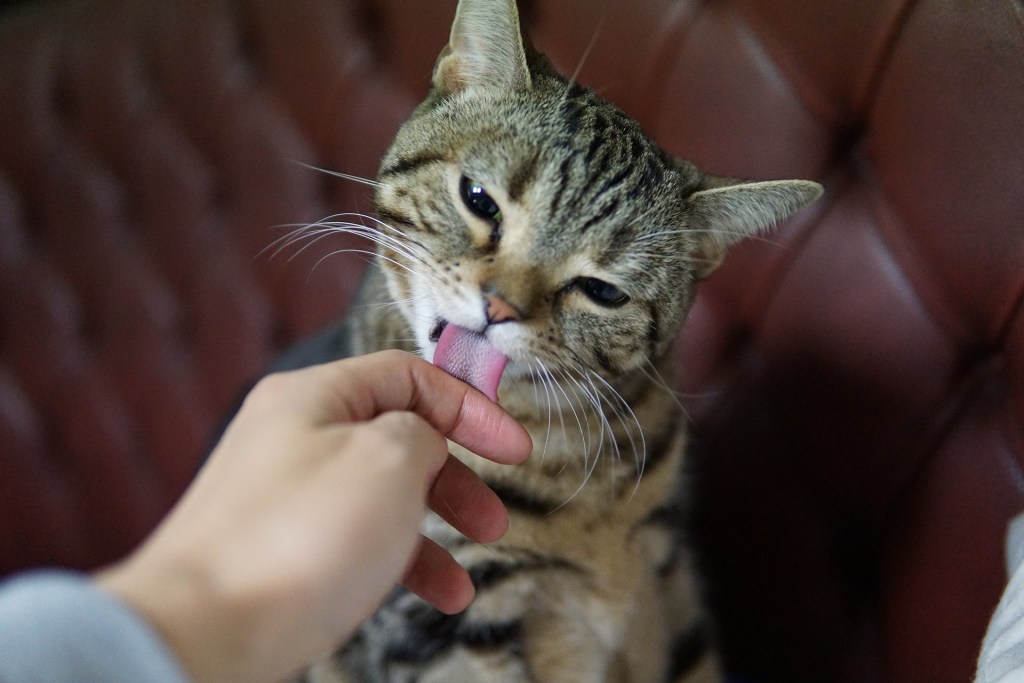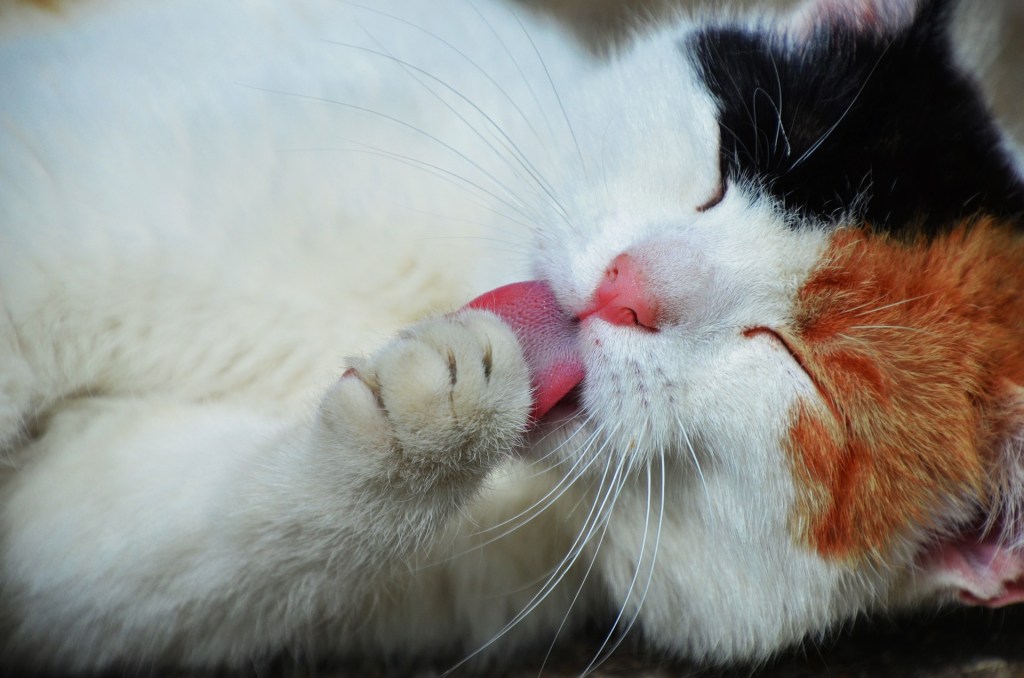Cats are known for fastidiously grooming themselves, but it can be a little surprising if they turn their attention to your hair. It’s not uncommon for cats to try to chew on and groom their humans’ hair. While this is often pretty harmless, there can be some risks you should be aware of, and it can even be a warning sign of another problem. And if you’re not crazy about the fact that your cat is chewing on your hair, there are many different ways that you can put an end to the habit.
So, why do cats chew hair? There are a few potential causes behind this behavior.

It’s a form of attachment
According to DVMs Dr. Ignacio Casali and Dr. Maria R. Mendoza, your cat might be grooming you as a way of demonstrating his affection for you. When cats live in communities, they spend a lot of time interacting with one another through grooming, licking, and cuddling. If you pet your cat while he cuddles with you, he might instinctively lick you, in return, which can be an effort to reciprocate your affection. He might even lick your hand or start grooming and biting your hair.
When cats groom you, they’re indicating that they are relaxed and see you as part of their feline family. They might target your hair so that you will better carry their scent and tell the rest of the cat world that you’re part of their clan.
It’s a compulsive behavior
According to Web MD, your cat might chew on your hair because of boredom or a compulsive disorder. A big change in your cat’s environment, like the addition of a new baby or pet to the home, can sometimes prompt this behavior. Anxiety might lead your cat to adopt strange behaviors like hair chewing as a way of reducing his stress and better coping with the situation.
If you suspect that your cat has developed a compulsive behavior, it’s a good idea to schedule a trip to your vet. Your vet can evaluate your cat, look for any potential physical causes behind the behavior, and help you identify the problem and determine the best steps to help your cat.

Preventing hair chewing
Even if your cat isn’t chewing on your hair because of a compulsive behavior or other issue, it could still lead to some problems for Fluffy. According to Yahoo, hair regrowth products can be toxic to cats if ingested. Plus, the behavior can be annoying and a little gross for humans. Luckily, there are many ways to put a stop to this behavior.
If your cat is chewing your hair in an effort to show you affection, consider ways to show your cat attention in a positive way. Patting and brushing your cat can be a great way to bond with him, but just make sure to keep your hair up and out of the way.
You can also focus on redirecting your cat’s attention away from you and onto something more positive. If your cat tries to chew on your hair, introduce a toy that’s more appropriate for him to play with. He might be attracted to the way hair dangles, so try a feather toy that also dangles.
If you suspect your cat is chewing on your hair out of boredom, you can provide many alternatives and new sources of entertainment. Schedule playtime multiple times a day so your cat gets plenty of interaction and attention. You can also use a puzzle feeder or cat grass to keep your cat entertained when you’re not available to play with him directly.
Final thoughts
If your cat has recently started chewing on your hair, you may need to do a little bit of investigative work to see if you can understand what’s behind this change. Think about any big changes to your cat’s life, like the recent addition of a baby or even a move to a new house. When your cat tried to chew on your hair, pay attention to what else is going on. Is he highly relaxed? Is he purring? Is he trying to cuddle with you?
When you understand what’s motivating your cat to chew on your hair, you can make some easy changes to stop the behavior. Don’t forget that you can always reach out to your vet for help, too.


